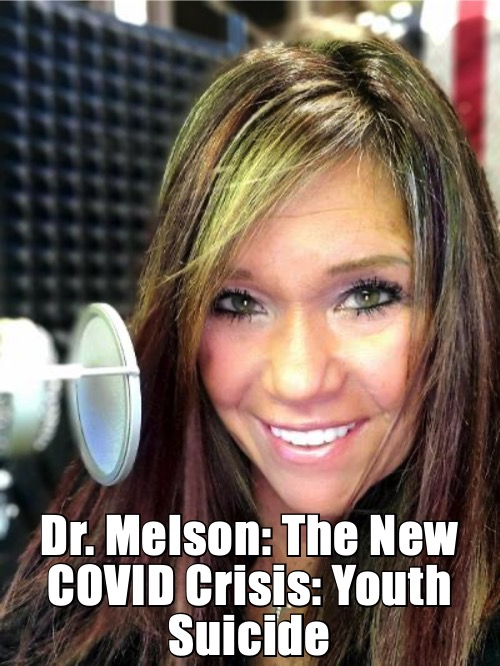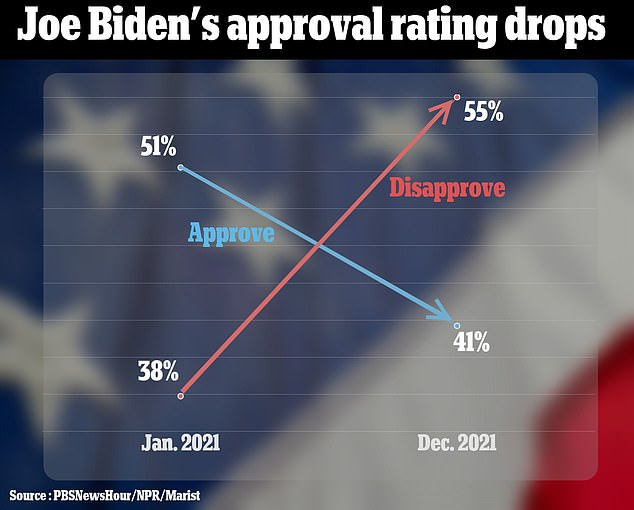Dr. Melson: The New COVID Crisis: Youth Suicide
The year 2020 will indeed be a year to remember.
From politics to pundits, to differing medical opinions and a pesky pandemic, we have experienced a variety of unknowns like we have never seen. The events of this year have affected individuals and families, our senior citizens, and our youth. Indeed, they are having a profound effect on almost every single human being around the world.
If you are feeling the effects, you are not alone, and you are not crazy.
Two specific age groups are most at risk of feeling the impact of 2020’s chaos and tumult, for months, and dare I say, years to come. Children and teens are being affected beyond what the eye can see, and if history and research are indications, we are about to experience a systemic mental health epidemic across America.
It is time for politicians, school board members, parents, and educators to wake up!
I have worked in the mental health field for many years. My expertise is working with pre-adolescents, teens, and parents. With the explosion of social media and due to the inability to attend school and work in person, I have seen the detrimental effects on the developing brain affecting behavior, social awareness, relationships, and cognitive development.
For example, social media bullying is on the rise, causing increased anxiety, and higher rates of depression and suicidal ideation. Pew Research studies have found that almost 60% of teens and tweens have been moderately to severely bullied via online social media platforms during this pandemic (Pew Research Center).
Now with COVID-19 regulations affecting our nation’s households, we have governors and educators determined to keep students unnecessarily locked down. This has opened the door to a plethora of issues as children are forced to be online up to 6–10 hours a day, putting them at greater risk of online bullying and mental health issues.
The lockdown regulations also are forcing parents to navigate the educational highway, taking time out of their day and, thus, sacrificing their careers and personal time. All of that is causing severe undo stress on the entire household.
The children most affected are those: (a) in single parent or grandparent homes, which comprises nearly 35% of U.S. households (U.S. Census report, 2018), (2) those with IEPs and special needs, (3) those with pre-existing mental or physical health issues, and (4) those with previous substance, child, or domestic abuse issues.
If schools remain closed, millions of parents will struggle to maintain their livelihoods. In lower income areas, we will continue to see children at risk of child abuse as social services are interrupted and CPS reporters (educators) are no longer able to be advocates. Case management and home visits have also been highly disrupted, and school closures eliminate this essential source of assistance for abused and neglected children.
With COVID-19 infectious rates being minimal in children, the fear of contracting the virus can no longer be considered a reason to keep schools closed. The stress of confinement, social isolation, and working from home are causing parents to feel overwhelmed. Children will feel the effects of their parent’s stress and begin to act out in unhealthy ways. Coping with self-harm and even suicide is quickly becoming our new reality (Revelette, 2020). Regular check-ins with your children are imperative.
Parents who have minor children make up almost 30% of the workforce. That means over 41 million families are dealing with educational issues, with almost 35% of them coming from single-parent households. Thirty percent of all working families have a potential caregiver at home and 70%, over 23 million families, do not, and risk job loss, increased stress levels, and mental health issues if their child does not attend school (Brookings Analysis, 2020).
The National Academy of Sciences (2020) states that priority must be made for children K–12 to be able to return to full time, in-class learning modalities. As a mental health professional who meets and speaks regularly with teens and tweens, I can tell you the lack of face-to-face interaction and the increased social isolation are having profound effects.
From what I have experienced in counseling adolescents for over 20 years, and then during this COVID-19 crisis, in-person education builds self-identification, social skills, a greater sense of self, and care and consideration for others in the community. Getting an in-person education is essential for children to thrive and develop. All the above characteristics are necessary for a thriving society.
Furthermore, what I have found in my interaction with parents from various socioeconomic backgrounds and from interviewing educational experts and law enforcement personnel in the past five months is evidence of a decline in mental health and self-worth with students and an increase in parental stress and juvenile delinquency.
If this continues, society will see an increase in the number of juvenile drug and alcohol use, crimes committed, parental stress, potentially leading to emotional outbursts in children and teens, in self-harm, and suicidal ideation. We are at a mental health crisis point in America.
In the last 30 days, the Centers for Disease Control and Prevention (CDC) reports that 1 in 4 children under the age of 18 have had suicidal thoughts, a greatly elevated number since COVID-19 reared its ugly head. In young adults, ages 18–24, an alarming 75% reported they “are struggling” mentally.
In many larger cities in states, such as California, Oregon, and Illinois, where in-person instruction has been limited or completely locked down due to COVID-19 concerns, state governmental health agencies are reporting up to 25% increases in actual suicide deaths within all age ranges. That is very concerning.
The toxic mix of social isolation, economic stress, and pre-existing mental health and familial issues have quickly led to the dangerous levels of suicidal ideation and severe depression we are witnessing within our student population.
With my years of experience, I can confidently warn you of what is to come:
- Drug and alcohol addiction issues due to the inability to cope
- Domestic and child abuse increases
- Depression and anxiety due to student retention
- Mental and physical health issues for special needs and IEP/504 students due to lack of support
- PTSD and stress-related issues for those more susceptible to viewing COVID-19 as a traumatic event
- Higher divorce rates due to economic issues which can lead to higher rates of depression and anxiety within the family
- Developmental and physical growth issues with students due to excessive use of social media and electronic devices and the accompanying stress
The inability of children to attend schools in person is causing issues that in some cases may be reversible but, in many cases, may not. A San Diego State University study found that more than five hours of electronic device usage by children can increase suicidal ideation by 71%.
The American Journal of Preventative Medicine echoes this concern stating that children interacting on social media sites instead of in person more than 58 times per week are three times more susceptible to feeling socially outcast and isolated.
So, where does that leave us and what can we do? Until we as parents, educators, and caring adults act on this crisis, we are going to see an entire generation of mentally unstable individuals.
- Write, call, and email your politicians (at the local, state, and federal levels) to demand schools be opened—even at a modified level
- Call your school board and city council members
- Get your children outside and active, play board games with them, ask them regularly how they are coping
- Talk to your children and normalize their feelings and emotions and tell them they are not alone
- Pray for, and with, them
- Get them involved in youth group or community activities—if everything is closed-down start one at your house
- Share this information with everyone you can—our kids’ future depends on it
My hope is that educators, parents, and politicians will wake up and realize how devastating COVID-19 lockdowns have been on society—specifically on the youth of America. The mental health crisis we are about to see in the coming months and years will be devastating.
No matter what, keep fighting the good fight for our youth and for the future of America.
Dr. Bridget Melson, MFT, Psy.D
Host of Diagnosing America
Bateman, Nicole (2020). Working Parents Are Key to COBID Recovery. Brookings Education Analyst. https://www.brookings.edu/research/working-parents-are-key-to-covid-19-recovery/
Revelette, William, M.D. (February 2020). The Mental Health Crisis in Children. nfhs.org/articles/the-mental-health-crisis-in-children-and-young-adults/.
Centers for Disease Control and Prevention. (2020). Community, Work & School: Considerations for Schools. https://www.cdc.gov/coronavirus/2019-ncov/community/schools-childcare/schools.html
National Academies of Sciences, Engineering, and Medicine, (2017). Communities in Action: Pathways to Health Equity. Washington, DC: The National Academies Press







